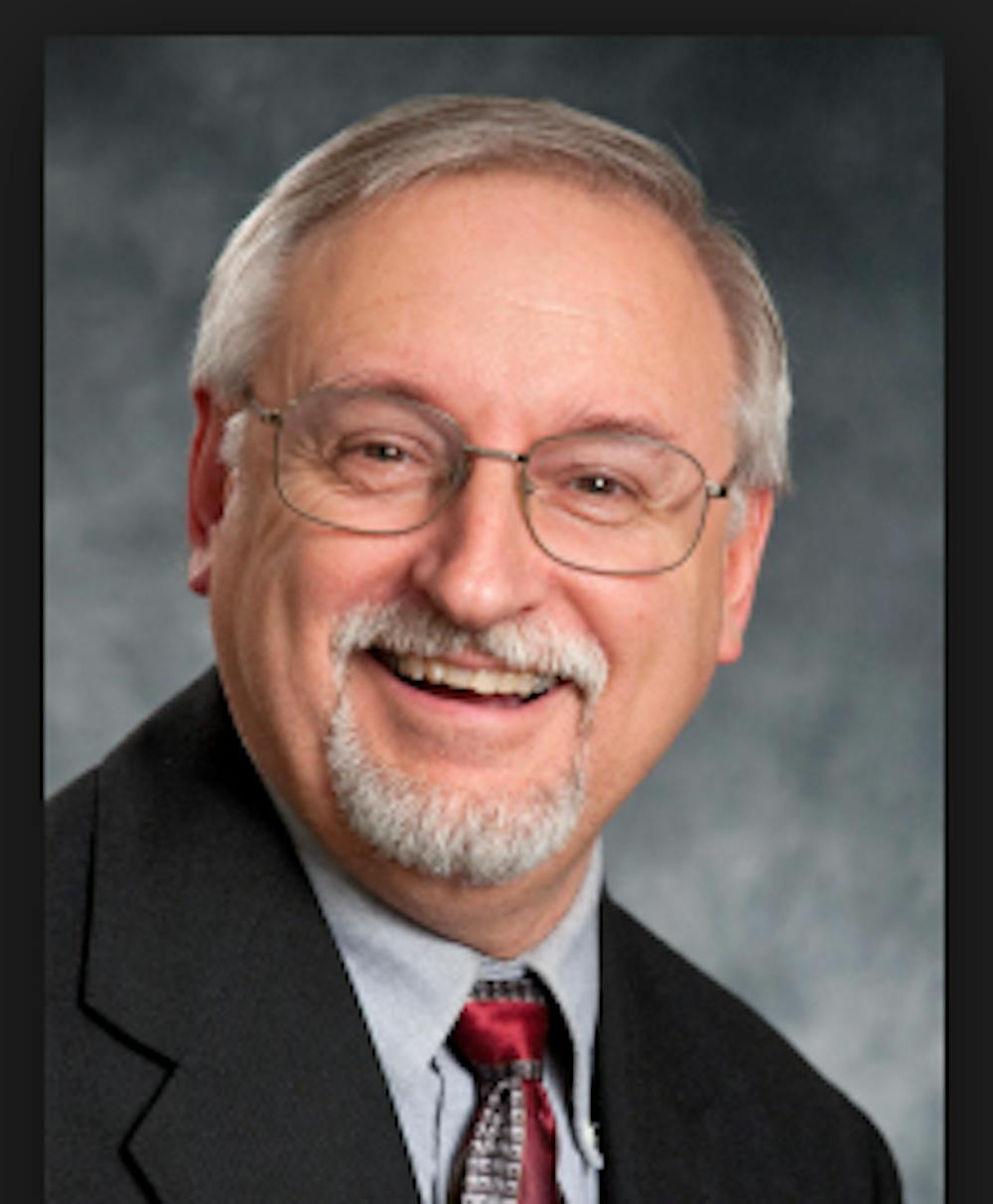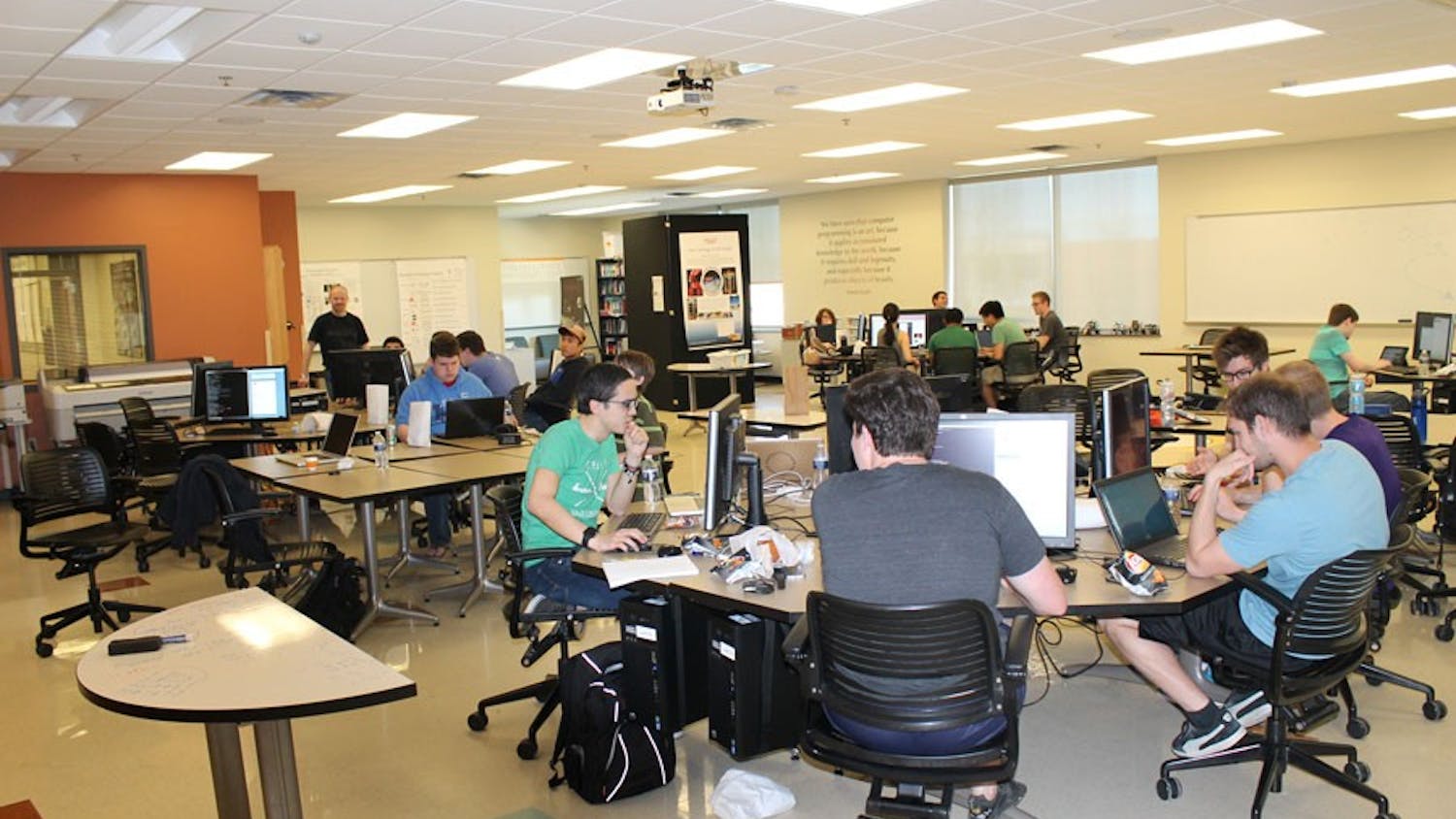By Kyle Carruthers
Students were provided with the opportunity to expand their understanding of the beginning of Genesis on April 8 by learning how the Israelites would have viewed the text and attempting to eliminate meaning read in as a result of our modern culture.
Dr. John H. Walton professor of Old Testament at Wheaton, visited Taylor as part of his seven month speaking tour called "Origins Today: Genesis Through Ancient Eyes."
Walton is an expert in ancient near eastern literature and has taught it for more than 30 years and authored several books on the subject.
Walton spoke to faculty and students of the School of Natural and Applied Sciences and then to the general Taylor and Upland community. On Tuesday, he spoke to faculty and students of the Biblical Studies, Christian Education and Philosophy departments.
Walton's goal was to accurately approach interpreting the Genesis account of creation, while attempting to combat the idea that religion and science are at odds.
"Many people today think that there is a culture war going on between science and the Bible," Walton said. "This implies that mutually exclusive claims are being made and that people must choose between science and the Bible."
Walton wanted his audiences to consider what kind of creation account is found in Genesis 1 and 2. He focused on understanding the Bible within the context of the Israelite's perspective and avoiding reading modern knowledge into the text.
Walton believes the Genesis account of creation is not a material account of creation. Misunderstanding the ancient Israelite perception of the world leads to incorrect interpretation of Genesis.
"We have to think about the world the way they thought about the world," Walton said. "God intended his purpose to be carried out by these authors. To his language, to his culture, to (his) audience. God's purpose is carried out through human purpose."
Walton argued a material account of the Genesis creation would have been nonsensical to the Israelites. He said God interacted with them to provide the more important account of the function of humanity and the world.
But, rather than convincing people, Walton believes healing the rift between science and religion is most important. Assuming rejection of evolution as a prerequisite to Christianity causes needless division in the church and harms evangelism, He stressed he was not proposing evolution as the only acceptable theory of creation-only that the Genesis account does not comment on the scientific details of creation.
"Too often in the church we are ready to dismiss people who have accepted scientific conclusions we are uncomfortable with. We've made these lines of divisions that only people who believe a certain way are Christians," Walton said.
A question and answer session followed each talk in which students and faculty asked clarifying questions about Walton's proposal. The response during the session for science students seemed positive as students took all available copies of the talk, which were given out as free DVDs.
"I think what John Walton provided was that there can be a truly honest examination of the foundations of their faith and without a worry," said professor of biology John Moore. "I think this showed (students) that really there is nothing there that will be a threat because this was not about a process, this was really about who God is and what he was taking control of in his creation."





